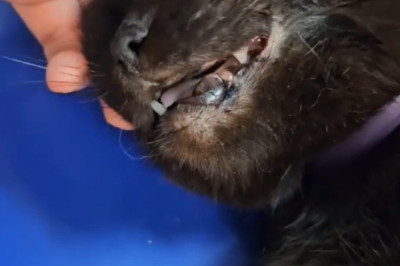Unveiling the Most Remarkable Scientific Discoveries About Pets in 2023
Introduction
The year 2023 has proven to be a pivotal one for scientific breakthroughs related to our beloved animal companions. Researchers have delved into the intricate worlds of rats, cats, dogs, frogs, and the impact of pets on children's allergies, unveiling fascinating insights into the animal kingdom. In this article, we explore some of the most astounding discoveries and their implications for our understanding of the natural world.
Rats' Imagination Unveiled
In a groundbreaking study published in November, researchers from the Janelia Research Campus at the Howard Hughes Medical Institute revealed that rats possess the ability to mentally navigate spaces they have previously explored, solely relying on their thoughts. This implies a form of imagination previously thought to be exclusive to humans. The study marks a pioneering endeavor demonstrating that non-human animals can activate brain representations of distant locations.
Expressive Faces of Cats
Cat owners have long recognized the expressive nature of their feline companions, but a recent study has shed light on the extent of their facial expressions. Researchers found that cats can make a staggering 276 distinct facial expressions, using 26 unique facial movements such as lip licking, nose licking, and eye squinting. Brittany Florkiewicz, a co-author of the study, emphasized the impact of domestication on shaping this repertoire of facial expressions, prompting intriguing comparisons with other species.
Prolonging Canine Life with a New Medication
Exciting developments in the field of biotechnology offer the prospect of a medication designed to extend the lifespan of dogs. Loyal, a San Francisco-based biotech company specializing in longevity treatments for canines, is working on a drug intended to reduce levels of a growth-promoting hormone that can shorten the lives of large and giant dog breeds. Administered by veterinarians every three to six months, the medication could potentially be available by 2026 pending FDA approval.
Female Frogs' Unique Survival Strategy
A study published in the Royal Society Open Science journal in October revealed a fascinating behavior exhibited by female European common frogs during the mating season. To avoid unwanted advances from males engaged in intense competition for mating opportunities, female frogs feign death. This evolutionarily developed tactic allows them to survive the brief but intense reproductive period, protecting them from harassment, sexual coercion, and intimidation by males.
Pet Companionship and Reduced Allergies in Children
A Japanese study involving over 65,000 infants has uncovered a compelling link between pet ownership during fetal development and early childhood and a decreased likelihood of developing food allergies. Children raised in households with dogs showed a lower incidence of allergies to eggs, milk, and nuts. Similarly, those with pet cats were less prone to allergies related to eggs, wheat, and soy. These findings underscore the potential benefits of early exposure to pets in shaping the immune system's response.
Conclusion
The year 2023 has brought forth a wealth of scientific revelations, offering us a deeper understanding of the intricate lives of our animal companions. From the surprising cognitive abilities of rats to the expressive faces of cats, the potential for extending canine life, the unique survival strategies of female frogs, and the impact of pet companionship on children's allergies, these discoveries enrich our appreciation for the diverse and often surprising behaviors found in the animal kingdom. As we continue to unlock the mysteries of the natural world, these findings pave the way for improved care, understanding, and companionship with our beloved pets.





















Comments
0 comment